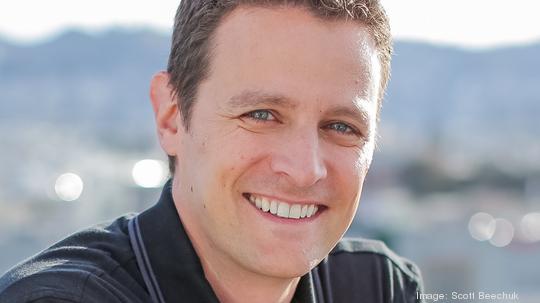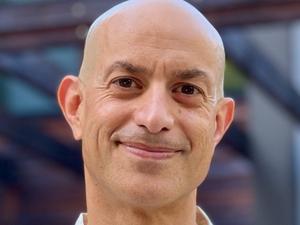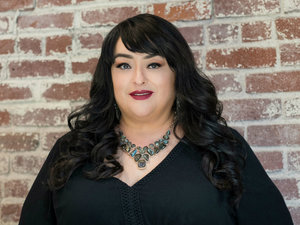
After founding and selling a few of his own companies beginning in the late 1990s — including a search engine called Fujo before Google dominated the space and an e-commerce platform — Scott Beechuk worked at Salesforce for several years where he was a senior vice president of product management in the service cloud division.
Then, at the age of 42, he decided to jump into the world of venture capital to help founders navigate the startup world and learn from his own past mistakes. A partner at Norwest Venture Partners since 2017, Beechuk invests in early- to late-stage enterprise SaaS startups, especially ones making advancements in artificial intelligence.
Beechuk is originally from Michigan but has watched the Bay Area transform since the 1990s and go through multiple booms and busts. The pandemic created opportunities for people to work remotely and move out of the Bay Area, generating lots of headlines proclaiming a great exodus out of the region, but Beechuk still sees a thriving industry here and isn't worried about Silicon Valley losing relevance in the age of Zoom.
I spoke with him recently about what Silicon Valley will look like in the next decade, why Montana could be the next tech hot spot and how San Francisco might bring back some of the art scene that has been lost to rising rents.
How did you get into investing? I studied electrical engineering and computer science at the University of Michigan, and after a couple of years doing software development — it was the Dot Com era — we got funded to build a search engine. So I left my job and became a co-founder and CEO. We ended up selling the first company 18 months later and did two more after that. The last one was an e-commerce platform. We sold that company and I joined Salesforce in 2010 and spent just under seven years there. After being on the other side of the table raising capital, I found that there was a small percentage of investors who were extremely helpful to me as I built my businesses. When I first got my start as a founder, I didn't know what I didn't know. And I made a lot of mistakes. And so I thought that at age 42 it was a great time for me to jump in and try my hand at venture. I chose Norwest over other firms because of the scale of having a multi-billion dollar fund. Also just sort of the Midwest roots that it had. Norwest is very collaborative, very kind, and obviously a top performing firm.
Thinking about Silicon Valley… It's the epicenter of tech and has been for decades. There's the so-called exodus, but I'm not sure hysteria is warranted. But there is some sort of decentralization. Are you worried about the acceleration of that over the past 18-plus months? I worry zero percent about it. And here's why. I've been in the Bay Area since 1997 and there have been several exoduses, so to speak. There was one in 2001 and another in 2009. Everyone was moving out because prices were too high. The truth is that the Bay Area is a beautiful place to live. There's always going to be people who want to live in the Bay Area. A lot of people have been able to move back into San Francisco because the rents came down. And you know what I miss a lot? I miss what I came to the Bay Area for originally, which was the diversity and the art. And just the nature that so many different types of people from all different walks of walks of life could be in such a small city all at the same time. And we lost that because over time, the prices just drove up and up and up. I'm an amateur musician and really appreciate artists. It made me really sad when a lot of the art studios from the Mission in the ’90s and early 2000s started to disappear. I think we're seeing a little bit of that comeback.
Do I think that Silicon Valley is going to suddenly disappear as an epicenter for technology? Absolutely not. I am not in any way against building up other tech centers around the country. In fact, I'm really excited about what's happening in Miami right now. And I think we need more than just one tech center in the US. Not just because I want to go get a tan in South Beach, but because I think that you're going to find different types of talent and different types of people. Diversity is one of the things that drives innovation. Ann Arbor is also a burgeoning new tech hub.
We're talking about a geographic region with decades worth of networks. People and companies and investors. It's an ecosystem that has developed over decades, and that's not going to unwind overnight. I've got 100 people we could just call and they're around, they're easily accessible. If I go to any random other city in this country, it's not the same. You don't have the expanse of the network.
Silicon Valley also still gets about half of all venture capital deals in the whole country. That's significant. Yeah. And, you know, I think that will change over time. But that's where we are right now.
It sounds like you think that's going to continue for a good while, right? Absolutely. I think the decline of the whole thing is going to take a lot longer. It's gonna be a much longer tail than everyone thinks. It might even be a tail with a swoop. My wife and I talk from time to time about how it'd be a lot cheaper to live somewhere else. But the potential in our careers would be diminished.
There is something about meeting for coffee and having a lunch in person. Over the past year and a half, I think we've learned that a lot of things can be done remotely and virtually. But I'm not so sure that I want to put on a VR headset to meet with my co-workers. Zoom is fine when we need it. I'm glad you agree, because I don't I think there's a lot of folks who have moved out of town. And they're gonna argue all day long that Zoom is just as effective. That there's no difference. I couldn't disagree more. Zoom has been a wonderful tool — 20 years ago, this wouldn't have been possible. We wouldn't have made it. But there are so many subtle things that we can we can transmit to one another in person. And I'm not talking about Covid. It’s the nonverbal cues that we get.
So where do you think the next hotspots will be for tech? Miami, Austin and Denver are some of the obvious ones. And you mentioned Ann Arbor. Yeah, I think Boston is should be on that list. Boston and Cambridge, for sure. If for nothing more than their proximity to MIT and Harvard. Wherever you find tech and universities, there tends to be communities there. LA is actually really accelerating. It's a different community, a different culture and a different vibe. Even down in San Diego and Whitefish, Montana, of all places. There's a great university there in Bozeman, Montana, too.
This speaks to the importance of diversity. Silicon Valley is going to be Silicon Valley. But this trend of tech and venture capital decentralizing a bit will benefit from the diversity of the communities where these hubs are. You can't do everything from New York or San Francisco because we don't we don't know Montana like Montana knows Montana. Right. And that's definitely an important vector of diversity. Another vector of diversity is the fact that we have so many smart immigrants that come to this country from all over the world. India. Israel. Portugal. China. There are a lot of very talented people and a lot of them naturally go to the Bay Area first. It's kind of like going to Hollywood for the movie industry. Then what happens is, people from all over the world who have come to Silicon Valley will eventually go to one of those other hubs, and that actually spreads the diversity even more.
What do you think the region will look like in 10 years? I think a lot is going to depend on San Francisco. The government in San Francisco provided some really nice tax incentives for tech companies to move in 10 years ago. If that continues, I think San Francisco could remain a central location. If that dynamic changes, it may cause businesses to go elsewhere. I'm talking mostly software. What we're seeing now is that a lot of hardware companies are starting to move out of the Bay Area for cost reasons. So if I had to take a guess, 10 years from now, we'll have a higher percentage of software companies in the Bay Area than hardware. And if San Francisco continues to provide the incentives to build and stay here, I think it'll continue to grow. I do worry about that, because I think our political leaders from 10 years ago were a very different set of political leaders than we have today. And it'll just depend on what our local government values.
Tax incentives could be a whole other conversation. There needs to be some balance, right? Twitter took the spotlight, but it wasn't the only company jumping on incentives and they were just grabbing on to what they were being given. I would love to see tech companies form a coalition where they enable non-tech people to come back to the city. I miss the other half, that creative, artistic side of San Francisco which is still there but it just has diminished so much. I think there is a way for companies to get together and build a system to bring more creative types and more art into San Francisco.
What would a coalition like that entail? If I was the CEO of a multibillion dollar company, because of who I am and what I care about, I would set aside some amount of capital, time and resources to build, say, a facility like SF Jazz here. We could build another set of music studios in the city or painting studios. It would be great for the community, and it'd be great for the tech companies themselves to have a more diverse, culturally enriched city in which to live and operate. That's what I would do, personally.
The Deets
- Residence: San Francisco
- Hobbies: Music, skiing and hiking
- Reading: Don't Unplug by Chris Dancy
- Watching: Squid Game and Ted Lasso
- Where did you go to school and what did you study? Electrical engineering and computer science at the University of Michigan
- What was your first investment? Bluecore, based in New York
- What are you most proud of? The fact that I have one of the happiest families that I know. And it's hard. And I'm not talking about just my immediate family. I'm talking about the extended family. We had a family reunion in Denver over the summer and there was not a single argument for the entire day.







